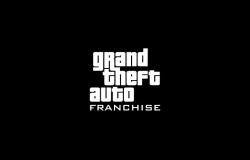Skyrocketing prices and excessive demand for a product that is no longer sold. To be more precise, it is an obsolete product that should no longer make sense. We are referring to the iPod, the popular music player with which Steve Jobs laid the first foundations to transform the world of music. The natural heir of the walkman It became hegemonic for two decades, and was ended by friendly fire: the iPhone made having an iPod redundant. Who would want to have a device with limited features when, for a little more money, you could have an iPhone that does practically everything?
On a supposed iPod tombstone we could read “October 23, 2001-October 2022”; The date of death is somewhat imprecise, since Apple continued selling the iPod Touch while supplies ran out. The epitaph was signed by the Cupertino company itself: a “The music continues” that we can read in the death note that the manufacturer published to the greater glory of the device. But what no one counted on was the resurrection of the device: they are quoted at exorbitant prices on resale, especially if the terminal is sealed. Laugh at bitcoins at their best: last Christmas, a sealed iPod sold for $29,000.
The possible causes
The iPod was swallowed by the iPhone. The second incorporated all the functions of the first, but it was also a telephone, it enjoyed the Internet, email… Why, then, has the iPod become a cult object now? “This should be asked of those who buy vinyl, cassettes and write emails on typewriters,” explains Rafa Espada, a web programmer from San Sebastian who continues to use his old iPod daily. The cult of the ancient, the vintagemay be behind these high prices, but there is also a tangible explanation behind it.
“We have been listening to music for many years streaming which is a great convenience, millions of songs available wherever we are,” explains Espada, “but these platforms, in my opinion, do not quite get the algorithms and the recommendations right.” Apple’s algorithm seems more precise, fundamentally, because it starts from a library that, to begin with, the user likes. Now, it has been forgotten, but not so long ago you had to purchase the entire album to listen to the song you liked the most. With the emergence of music in streamingthe user decides to choose which song to listen to and under a flat rate of unlimited use.
The part of discovery of the songs fundamentally depends on the algorithms of platforms such as Spotify or Apple Music, and they are a fundamental part of the musical experience of our time. “In my case, I use the platforms to make my first listens to music that I think might interest me, groups that I don’t know that come in concert,” the programmer clarifies. However, the skyrocketing price of iPods is also the result of the law of supply and demand. Since Apple has withdrawn the product from the market, collectors are eager to obtain, almost as an investment, fundamentally sealed copies.
“Retro fever and nostalgia has a cycle of about twenty years,” explains Javier Lacort, creator of the podcast about Apple. infinite loop; “When two decades have passed, a fashion, a trend, a product… begins its resurgence.” This product was the representation of a permanent and continuous invention by its engineers. Currently, there is hardly any room for improvement and we see this in successive iterations of mobile phones (iPhone buyers know this well), in which the camera, processor and chassis are barely improved.
On the other hand, and in the midst of a whirlwind of notifications, social networks and other stimuli that arrive through the screen, the iPod claims the simplicity of the basics. In Lacort’s opinion, “it has a component that greatly confronts current reality: it is a device that only does one thing, not thousands like the smartphone.” This hyperconnection is causing new generations to demand basic devices that return to what is essential. In this sense, the Norwegian manufacturer reMarkable has consolidated itself in a curious segment: that of tablets with electronic ink, which, unlike iPads, are only used for taking notes.
Searches for iPods skyrocket on Wallapop
Dedicated devices play an important trick: they only do one thing, but they do it very well. “If what you want is to listen to music: press play and that’s it,” explains Rafa Espada; “Navigating the menus is clear, there are many fewer options than on an iPhone, but it is more than enough if what you want is to listen to music.”
Has the iPod fever arrived in Spain? From Wallapop they confirm to EL PAÍS that they have done it, and with force. “Searches for iPod Classic have increased 73% on Wallapop in the last 4 years,” they say from the press area, and among the iPods, the Classic is the most coveted. “A peak in searches for Classic iPods has been observed on Wallapop in January, with 30% more than the rest of the months,” the platform reports.
Faced with this furor over this discontinued product, many are searching through their drawers to locate that old iPod and put it up for sale; The truth is that, if the equipment is in good condition and, above all, retains its original packaging, you can get some good euros. At least, until this fever passes through the device.
You can follow EL PAÍS Technology in Facebook and x or sign up here to receive our weekly newsletter.






